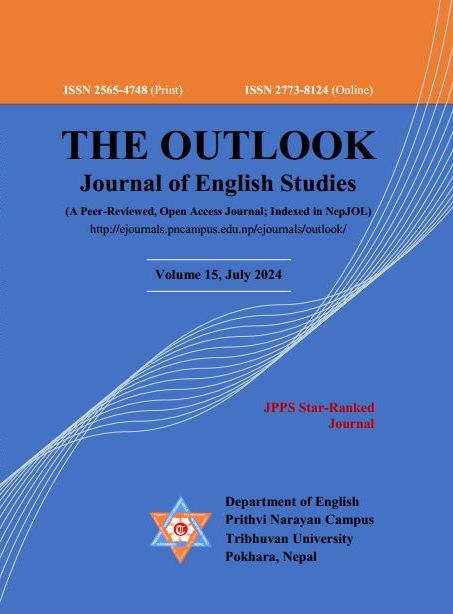Indigenous Knowledge for Environmental Conservation: An Ecocritical Approach to Silko’s Ceremony and Gardens in the Dunes
DOI:
https://doi.org/10.3126/ojes.v15i1.67769Keywords:
Natural environment, ritual practices, indigenous wisdom, traditional knowledgeAbstract
This paper examines the belief systems and ceremonies of the Native American people also known as American Indians or Indigenous tribal groups, exploring how their primitive ritual practices contribute to preserving the environment and maintaining the abundance of nature. The study argues that these people’s traditional wisdom which is based on close observations, one-to-one contact with the environment, and the first-hand experience sharpened over millennia, empowers them to understand the self-regulatory and self-renewal patterns of the natural world and take necessary precautions for environmental sustainability. To prove this argument, the study has undertaken Leslie Mormon Silko’s two major texts Ceremony and Gardens in the Dunes for textual analysis. Using ecocriticism as its theoretical framework, the study has borrowed insights from John Hannigan’s typologies of environmentalism, and Winona LaDuke or Gerald Vizenor’s concept of tribal wisdom. The finding of the study contends that indigenous knowledge plays a vital role in promoting natural balance and social equity. The study concludes that the conservation of natural environment ensures harmony, sustainable agriculture, development, and food security.
Downloads
Downloads
Published
How to Cite
Issue
Section
License

This work is licensed under a Creative Commons Attribution-NonCommercial 4.0 International License.
This license enables reusers to distribute, remix, adapt, and build upon the material in any medium or format for noncommercial purposes only, and only so long as attribution is given to the creator.

